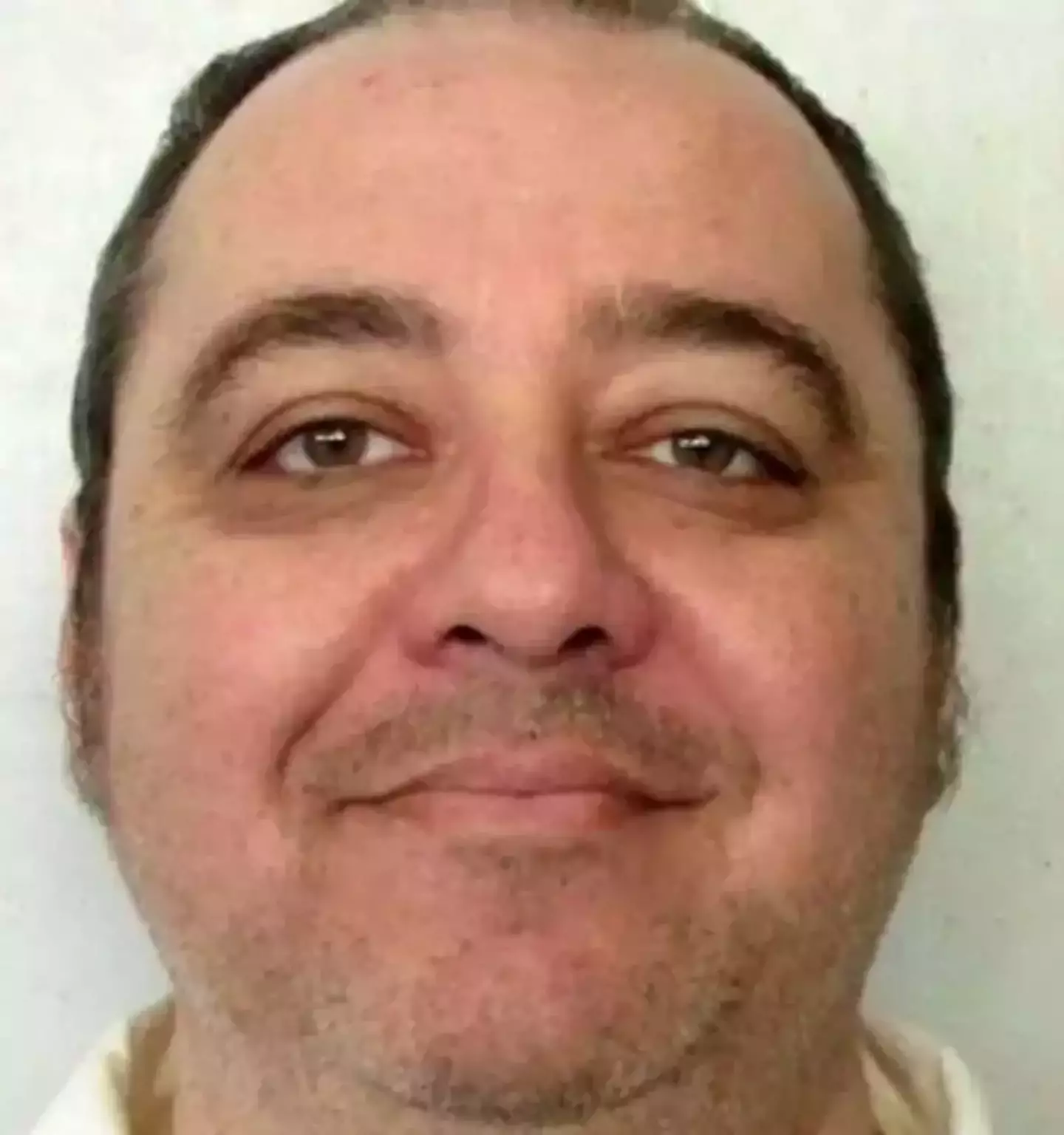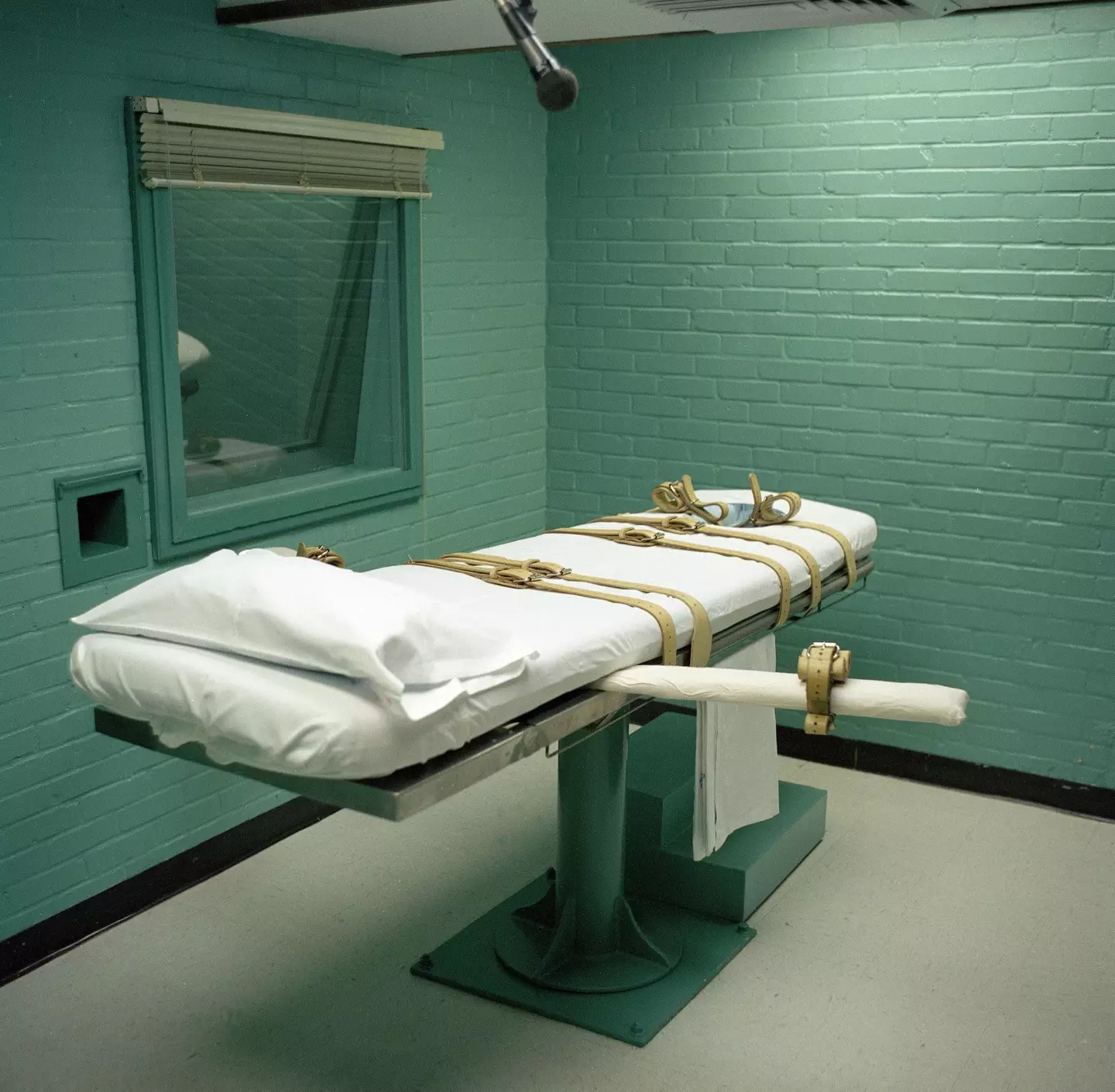.png)
A death row inmate who is set to be used as a 'guinea pig' for a new execution method next week already has some experience of the process.
The US state of Alabama is scheduled to put convicted killer Kenneth Smith to death on 25 January, after he has spent 36 years behind bars for the murder-for-hire slaying of Elizabeth Sennett.
The inmate had been recruited by her husband Charles, the pastor of the Westside Church of Christ, to carry out the 1988 killing as he reportedly wanted to get his hands on a large insurance policy.
Advert
Smith and his friend John Parker each received $1,000 in payment before they ambushed, punched, beat, bludgeoned, and stabbed Elizabeth with a six-inch survival knife.
The victim sustained ten stab wounds in total - eight to her chest and two to her neck - which proved fatal.
Smith was convicted of capital murder and was sentenced to death for his crimes in 1989, and again in 1996.
Alabama has tried to proceed with his execution a few times - but appeals, a fresh trial and an eleventh hour stay of execution have all delayed it.
Advert
The 58-year-old is now set to become the first death row inmate to used a controversial new execution method, called nitrogen hypoxia - which is only authorised by three states; Alabama, Oklahoma and Mississippi.

But it has never been used before, so critics have slammed it as 'experimental' and 'untested', while veterinary scientists in the US and Europe say the procedure is unacceptable for most small mammals other than pigs.
This death penalty method involves breathing in nitrogen through a respirator placed over the inmate's nose and mouth - killing them as a result of oxygen deprivation.
Advert
The state attorney's general office said during a December court hearing that the method would 'cause unconsciousness within seconds, and cause death within minutes'.
Smith has already managed to survive a brush with death before though, when Alabama tried to put him to death on 17 November, 2022.
According to his legal team, the inmate was strapped to an execution gurney for up to four hours as prison officials struggled to find a vein where they could administer the lethal injection.
The killer alleged that he was 'subjected to ever-escalating levels of pain and torture' as people persistently prodded him with needles, saying that 'no one responded to his pleas to stop the pain or answered his questions about what they were doing to him'.
Advert
His complaint added: "They were — and he thought they were — executing him."

Prison officials finally called the execution off at 11.20pm, with Smith said to have been left 'trembling, sweating, hyperventilating, dizzy, and could not lift his own arms to be handcuffed or walk unassisted', according to the Death Penalty Information Centre.
He has since complained of symptoms of profound trauma in wake of the botched attempt, including PTSD, 'severe and ongoing physical and psychological pain', nightmares, hypervigilance and disassociation.
Advert
It made him the second death row inmate in less than two months to survive being strapped to the gurney in Alabama.
This came after another three failed executions in the four years prior.
When Smith's new execution was given the green light last week, it received backlash from the UN high commissioner for human rights in Geneva, who said 'suffocation by nitrogen gas' is classed as torture and is inhuman.
Smith's attorney also appealed against the decision, alleging that his client would be used as a 'test subject'.
And on Friday (19 January), he claimed to the judges at the 11th US Circuit Court of Appeals that the method was flawed and that the state would attempt 'to execute Kenny Smith under unprecedented circumstances'.
Featured Image Credit: Alabama Department of Corrections / Getty Stock ImageTopics: Crime, True Crime, US News, News